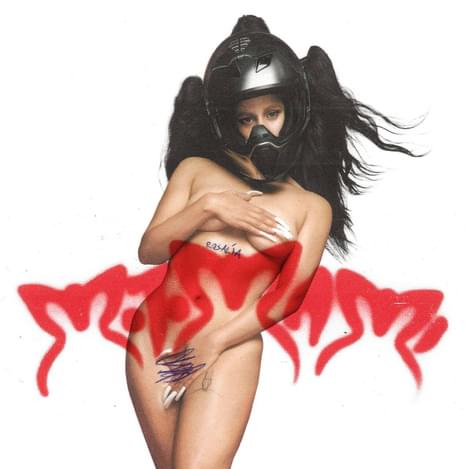Rosalía indulges every side of herself on the victorious MOTOMAMI
"MOTOMAMI"

Her first record – Los Angeles – is a haunting and poignant collection of Spanish folk songs, with bare instrumentals and an obsession with mortality. It was a skeletal record which seemed to exist to showcase her rich and masculine voice, but everything which came after it might as well have been the work of another artist entirely. One year later she turned to making brash, aggressive pop music with a weirdo edge, dabbling in trap, reggaeton and collaborating with Bad Bunny, The Weeknd and Travis Scott.
Early singles "Soako" and "Chicken Teriyaki" seemed to signpost that mainstream success was firmly in her sights, but her long awaited third album actually transpired to be a bridge between the two. Although those songs were all bombast, it's a record which captures both sides of her art; the romantic and the poignant, alongside a youthful hunger for wealth and fame.
Sonically, these worlds crash together in a resolute way. Motomami is a distinctly hispanic record, coloured with the dembow bounce of reggaeton and lashings of flamenco guitar. It’s also distinctly accessible, with glistening production aided by Pharrell, and choruses which stick like honey. But even if it won’t fulfil some fans hopes of pure eccentricity, a great deal of Rosalía’s appeal has also been the heart of the outsider. Her second album, El Mal Querer, was recorded as her University dissertation project, and a charming pluckiness still remains, from the exuberance of her rapping to the choruses of children she surrounds herself with on "Buleria".
Her varied production tastes are just one example of the duality which is a central theme of the whole album. “I’m very much me” she raps on the opener, ”like a butterly, I transform”. On the closer "Sakura" she even goes so far as to dismiss the fame she’s spent so much of the other songs showing off about, singing that “you can’t be a star and shine forever / I’m gonna laugh when I’m 80 and look back”, like all that flexing was just for fun. It’s hard to choose between the "Saoko"’s and the "Genis"’s – the former being a delicious piece of nasty braggadocio, and the latter being a tender, aching ballad; two extremes that are rarely reconciled on the same record as frequently as they are here.
Some critical honesty: I don’t speak Spanish. Apparently 560 million people do, and they’re about to have an entirely different relationship with this music than me. I even have it on the authority of several Spanish-speaking friends that the lyrics to "Chicken Teriyaki", for example, are borderline-gibberish. But lyricism is just one facet of music though, and Rosalía’s energy and the quirks of her production transcend vocabulary. Maybe that song is her sellout, Tik-Tok anthem but, for me, she can ride that grimy dembow all the way to the bank. The Weeknd sounds even more immaculate than usual singing in Spanish on the fame-fixated "La Fama", and on "Sakura" Rosalía might as well be an angel, the undulating tone of her voice silencing even her own song’s accompaniment.
Motomami is the sound of an incredible voice indulging in her pop fantasy and excelling at it, but she makes sure to remind us as often as she can that really, she can do it all.
Get the Best Fit take on the week in music direct to your inbox every Friday

Tunde Adebimpe
Thee Black Boltz

Julien Baker & TORRES
Send A Prayer My Way

Bon Iver
SABLE, fABLE





